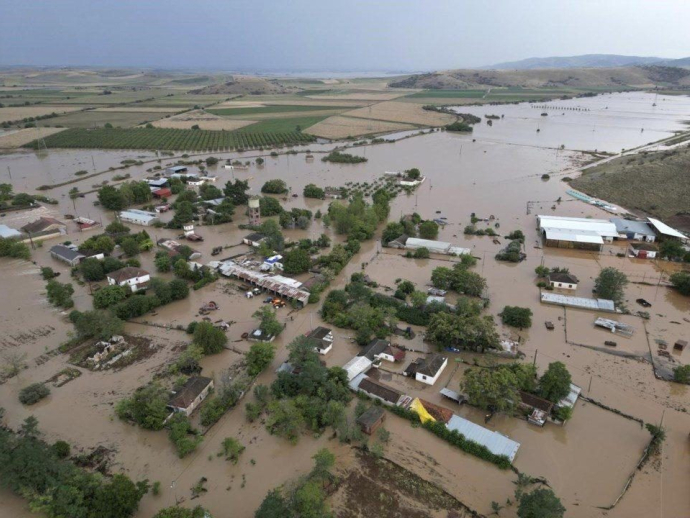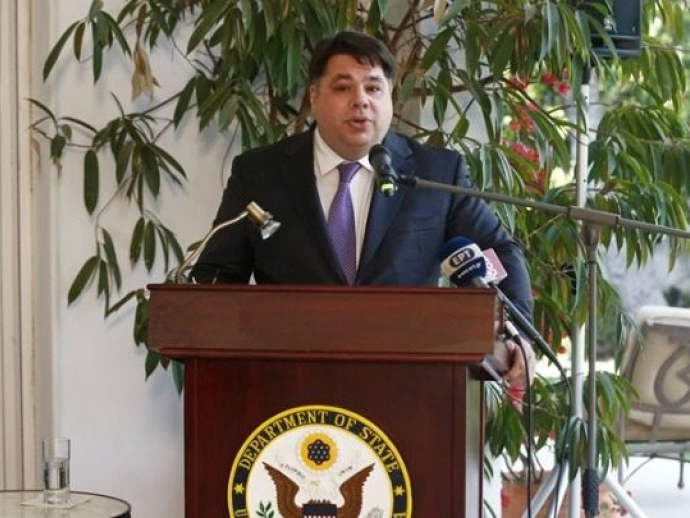COVID-19 and Summer 2022 Travel in Greece
Greece has also recently relaxed many COVID-19 restrictions, lifting most mask requirements and allowing entry to Greece without COVID tests or certificates of vaccination or recovery. Nevertheless, the U.S. Embassy continues to receive inquiries from U.S. citizens whose trips have been complicated by COVID-19. Please note the following recommendations and resources to minimize travel disruptions in Greece due to COVID-19 this summer.
Tip 1: Plan ahead
U.S. citizens should take both U.S. and Greek health and quarantine requirements into account before traveling to Greece. U.S. citizens should have a plan in place on what to do should they test positive for COVID-19 while traveling abroad. The Centers for Disease Control and Prevention (CDC) has issued a Level 3 Travel Health Notice for Greece due to COVID-19, indicating a high level of COVID-19 in the country and advising Americans to make sure they are vaccinated and up to date with their COVID-19 vaccines before traveling to Greece. If you are not up to date with COVID-19 vaccines, the CDC recommends that you avoid travel to Greece. Getting health/travel insurance prior to a trip is highly recommended: https://travel.state.gov/content/travel/en/international-travel/before-you-go/your-health-abroad.html.
Tip 2: Bring Masks
Face masks are no longer required in most indoor spaces in Greece, including restaurants, schools, museums, and most businesses. Masks are not required on planes or intercity public transport, where the seats of the passengers are numbered. Masks are still required in healthcare facilities, pharmacies, and nursing homes. Masks are also required on taxis and urban public transport (metro, electric railway, buses, trolleybuses, trams), as well as indoor areas of ferries. Please be respectful of others and the choices they make for themselves to travel and work safely and comfortably. If someone asks you to wear a mask in their presence, please do so out of consideration and courtesy.
Tip 3: Learn What To Do If You Test Positive in Greece
Many U.S. citizens have reported testing positive for COVID-19 while visiting Greece and had to extend their stay and navigate Greek and U.S. requirements related to quarantine, testing, and travel documentation. Please review the page of Information for U.S. Citizens Who Test Positive in Greece for guidance on what to do if this happens to you. Contact your airline for details on what they require in order to board a traveler who recently recovered from COVID-19. Your hotel or travel operator should also be able to help you locate medical assistance, further COVID testing, and other resources you may need if you have to isolate. Check the CDC website for detailed information and Frequently Asked Questions.
All visitors must abide by all COVID-19 health protocols in place by the Greek Government without exception. The Embassy cannot intervene in the mandatory isolation procedures or request an exception on your behalf. The General Secretariat for Civil Protection can be contacted directly at (+30) 213-1510100 or by email at generalsecretary@civilprotection.gr. If you need medical assistance, your hotel may be able to refer you to doctor licensed in Greece, and you may find medical providers also through the U.S. Embassy’s Medical Assistance page.
Further restrictive measures, including travel restrictions, may be imposed in any region with higher incidence of COVID-19 with little to no advance notice. Additional information is available in English at travel.gov.gr and GreeceHealthFirst.gr, and in Greek at the Civil Protection website and the Greek government’s COVID-19 Measures website.
Actions to Take:
For full details, visit the COVID-19 page on our website.
If you develop a fever and/or respiratory symptoms such as shortness of breath or cough, stay indoors and immediately seek medical attention by contacting the National Public Health Organization by dialing 1135.
Visit the CDC’s webpage on Travel and COVID-19. Read the Department of State’s COVID-19 page before any international travel.
Read the country information page for Greece.
Follow the instructions of local authorities.
Monitor local media for breaking news and adjust your plans accordingly.
Enroll in the Smart Traveler Enrollment Program (STEP) to receive Alerts and make it easier to locate you in an emergency.
Follow the Department of State on Facebook and Twitter.
U.S. citizens who travel abroad should always have a contingency plan for emergency situations. Review the Traveler’s Checklist.
Assistance:
U.S. Embassy Athens
+(30) 210-721-2951
AthensAmericanCitizenServices@state.gov
https://gr.usembassy.gov
U.S. Consulate General Thessaloniki
+(30) 2310-376-300
State Department - Consular Affairs
(888) 407-4747 or (202) 501-4444






































































































































































































































































































































































































































































































































































































































































































































































































































































































































































































































































































































































































































































